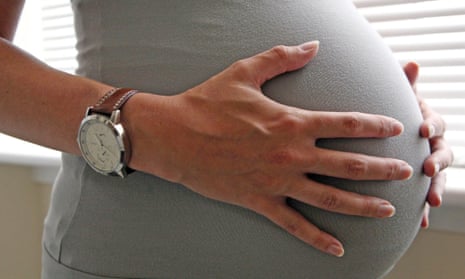Half of working mothers and more than a quarter of fathers have faced discrimination during pregnancy, parental leave or return to work, a government report says.
Led by sex discrimination commissioner Elizabeth Broderick, the study released on Friday found “indisputable evidence” that discrimination around having children continues to be a “widespread and systemic issue which inhibits the full and equal participation of working parents, and in particular, women, in the labour force”.
The report is the most comprehensive study of workplace discrimination towards pregnancy and parental leave ever carried out in Australia and also found that the issue has far reaching costs beyond just victims and their families, with busibnesses and the economy affected.
The Australian Human Resources Institute estimates that staff turnover costs businesses $20bn a year. The Grattan Institute has found that increasing the number of women of women in the workforce by just 6% - which would halve the gap between men and women - could increase the national GDP by $25bn.
The report found that 49% of mothers and 27% of fathers experienced discrimination at some point during their pregnancy or return to work. A person was more likely to experience discrimination in a large business than a small business, and in a male dominated workplace.
The number of women who decided not to return to work at all after having a baby was more than 50% higher if they had experienced discrimination.
Broderick highlighted the large proportion of people who did not report discrimination – 91% of women and 95% of men did not report it to either their place of employment or a government agency.
“Even in sexual harassment our prevalence studies show that around 18-20% of women who experience it will make some form of complaint about it,” she said.
“I think [the lack of reporting] speaks to the hidden nature of it and a real fear that if I speak out about it I’ll be seen as a trouble-maker, I’ll be victimised.”
Broderick said the fear about job security and reprisals for reporting was particularly prevalent in regional areas where the labour market in the small community was reasonably tight.
Enduring social norms around the place of women and mothers in the workforce also contribute to the negative culture in a workplace, and Broderick encountered numerous examples as the review spoke with hundreds of individuals and received hundreds more submissions.
The idea that a “good mother” stays at home with the children and another that the ideal worker gives their all to the job could often combine.
“One of the most depressing comments I heard was a woman who said : I was told I was a bad mother and a bad employee,” said Broderick.
The discrimination also extended to job applications.
“In regional centres I was more likely to hear from women who would see the job in the paper and one of the questions they’d be asked is if they are childbearing age.”
That was illegal, she said, but the problem flourishes because employees do not know their rights and employers do not understand their obligations, she said.
A key recommendation of the report was for different industrial relations departments and agencies to “come together and create a simple, concise, short statement of employee rights and employer obligations, and for it to be disseminated through the Paid Parental Leave scheme,” said Broderick.
“Even that would be a step.”
She said recent focus on child care and the current and proposed paid parental leave schemes were important, but the report showed there was a “missing piece” by not addressing discrimination.
“You can have the best childcare, the best paid parental leave scheme, but if pregnant women are not welcome at work then we’re still not going to address women’s workforce participation.”

Comments (…)
Sign in or create your Guardian account to join the discussion